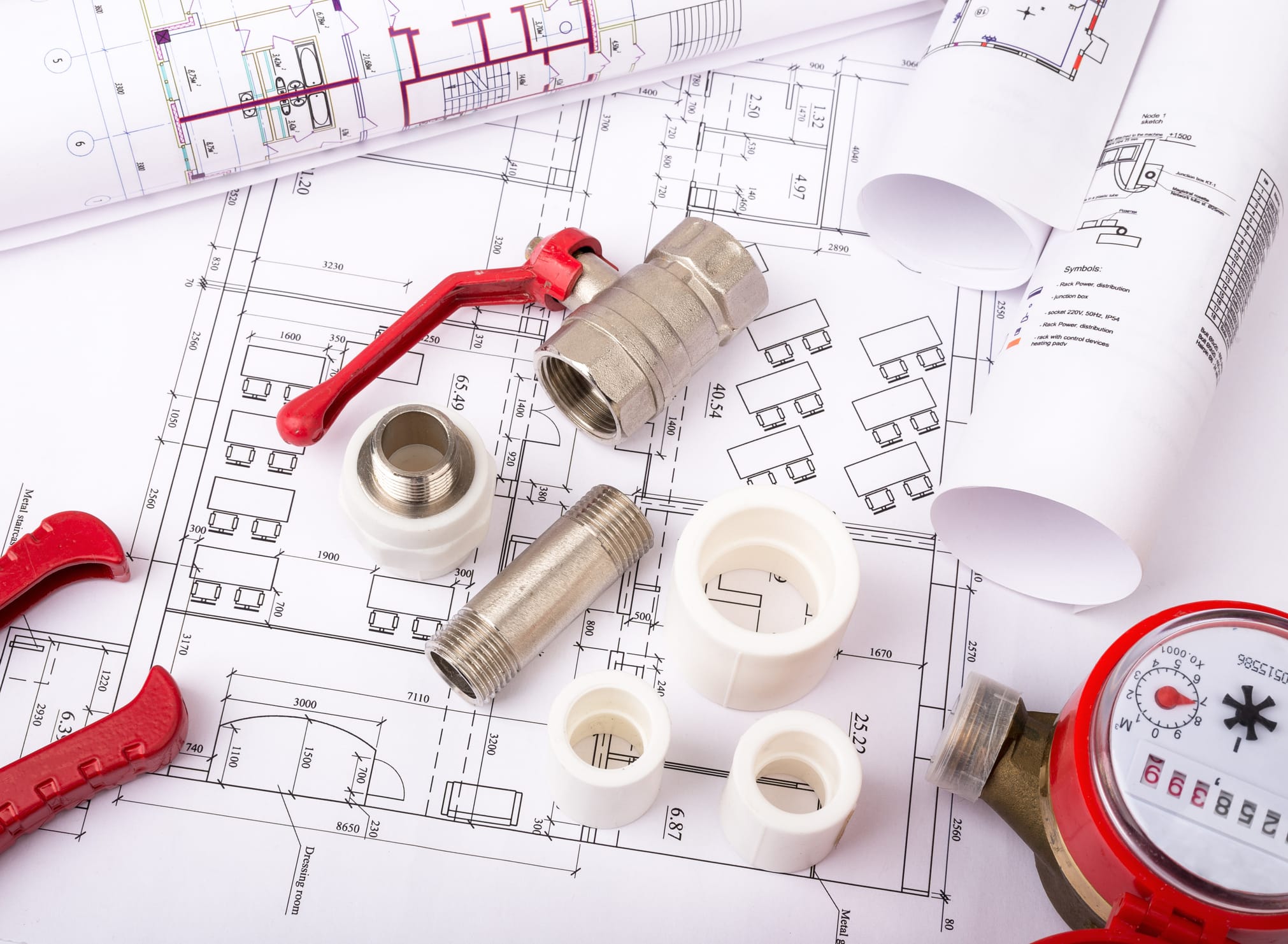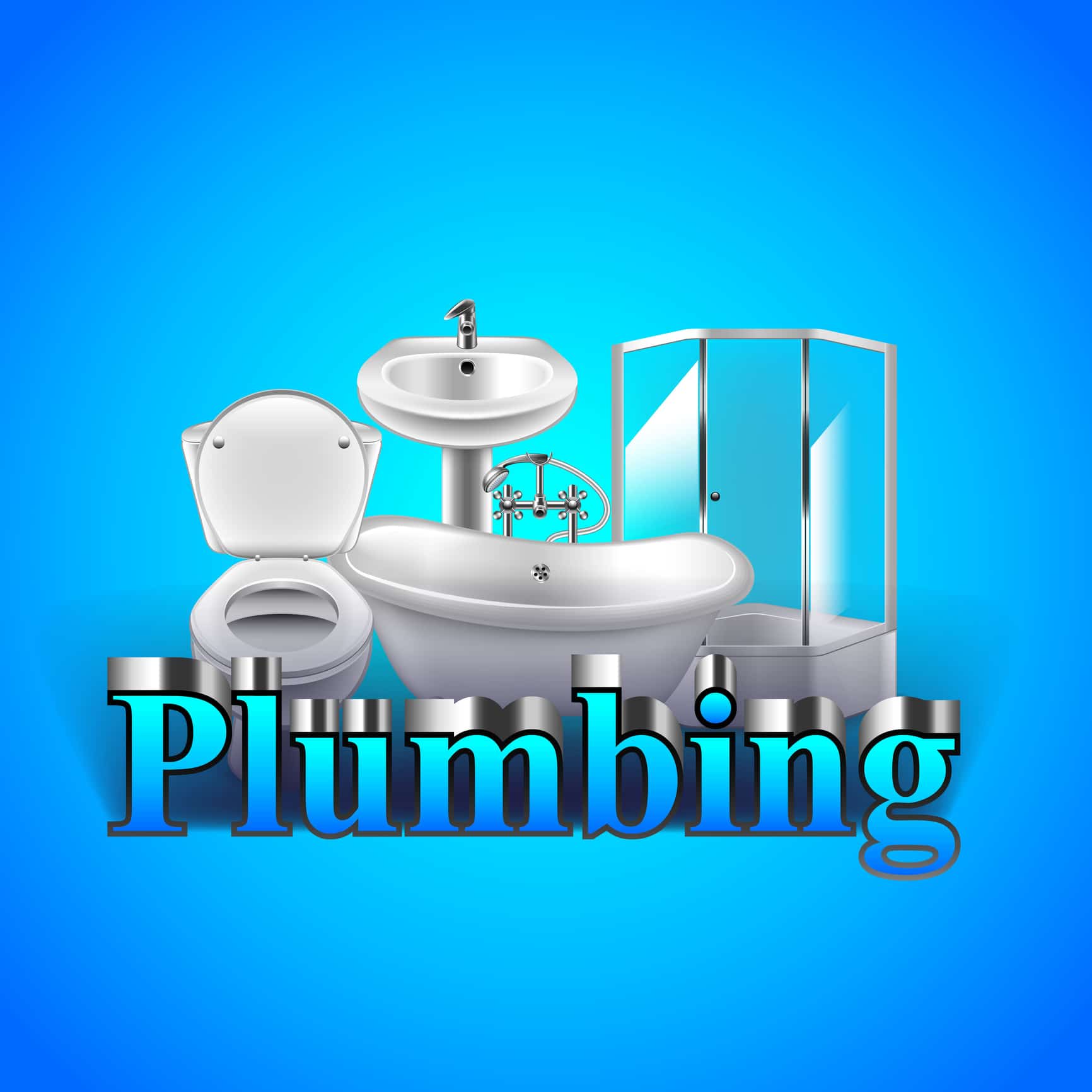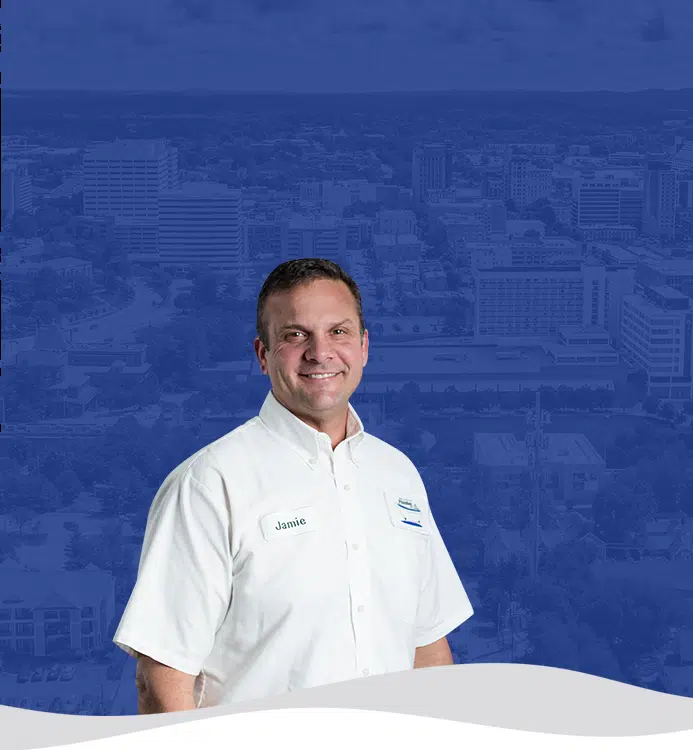Tennessee homeowners are on the brink of experiencing significant changes in their plumbing systems. The state’s updated plumbing codes introduce smarter, safer standards that promise to enhance both performance and water safety. These modifications are not just about keeping up with technology, they’re about prioritizing the health and sustainability of our communities. For residents in Knoxville, Maryville, and Seymour, staying informed about these changes is crucial to ensure compliance and avoid potential penalties.
The introduction of these new plumbing codes marks a pivotal shift towards more efficient and reliable home plumbing systems. From advanced backflow prevention to the adoption of water-efficient fixtures, the updates are designed to meet the evolving needs of Tennessee homes. This evolution reflects a broader commitment to environmental stewardship and public health, ensuring that local water systems are both safe and sustainable for years to come.
For homeowners in Knoxville and beyond, understanding these plumbing codes is more than a legal requirement, it’s an opportunity to contribute to a healthier environment. The codes offer guidance on how to upgrade plumbing systems, making them more resilient against contamination and wastage. Whether you’re in Maryville or Seymour, embracing these standards can lead to significant improvements in water quality and efficiency in your home.
Navigating the updated plumbing codes may seem daunting at first, but it’s a step forward for Tennessee residents. By adhering to these new standards, homeowners can enjoy not only enhanced system performance but also peace of mind knowing they’re in compliance. As these updates roll out across Knoxville, Maryville, and Seymour, they bring with them a promise of a safer, more sustainable future for all Tennessee homes.

Overview of the New Plumbing Codes in Tennessee
In Tennessee, the new plumbing codes are setting a benchmark for modern, efficient, and safe water systems. These standards emphasize the importance of preventing backflow, which can contaminate water supplies. Homeowners in Knoxville will find that these updates require the installation of devices that prevent the reverse flow of water from a home back into the public water system. This measure significantly reduces the risk of contamination, ensuring that drinking water remains safe and clean.
Additionally, the codes introduce requirements for water-efficient fixtures in homes across Maryville, TN. This move aims to reduce water wastage, a critical step towards sustainability. By installing these fixtures, homeowners not only comply with the latest regulations but also contribute to water conservation efforts. The benefits extend beyond compliance, offering potential savings on water bills and fostering a more sustainable environment.
For residents in Seymour, TN, understanding these plumbing codes is crucial for both new constructions and renovations. The regulations cover a wide range of plumbing systems, including those for heating, cooling, and sanitation. Adhering to these codes ensures that plumbing systems are installed and maintained to the highest standards, enhancing the overall safety and efficiency of homes. It’s a proactive approach to keeping homes up to date with the latest in plumbing technology and standards.
The impact of these plumbing codes on Tennessee homes cannot be overstated. They represent a significant shift towards more responsible and eco-friendly plumbing practices. As homeowners in Knoxville, Maryville, and Seymour adapt to these changes, they play a vital role in promoting public health and environmental sustainability. These updates are not just about meeting legal requirements, they’re about building a safer, healthier future for all Tennessee residents.
The Importance of Backflow Prevention in Homes
Understanding the significance of backflow prevention is crucial for homeowners across Tennessee. The updated plumbing codes specifically address this issue, aiming to protect the water supply from contamination. By requiring the installation of backflow prevention devices, these codes ensure that water flows in one direction only, safeguarding against pollutants entering the clean water supply. This measure reflects a proactive stance on maintaining water quality and health in communities like Maryville, TN.
Incorporating these devices into home plumbing systems is now a standard practice, thanks to the new plumbing codes. Homeowners in Seymour, TN, will find that compliance not only enhances their home’s safety but also contributes to the wider community’s well-being. The introduction of such regulations underscores the importance of collective action in promoting public health. It’s a clear indication that the state takes water safety seriously, encouraging residents to do the same.
The benefits of backflow prevention extend beyond just compliance with the plumbing codes. They also offer homeowners peace of mind, knowing their water supply is protected from potential contamination. This aspect of the plumbing codes demonstrates a commitment to long-term health and safety standards. As these practices become more widespread, they lay the groundwork for a healthier future for all Tennessee residents.
Adapting to these changes may require some effort, but the advantages are undeniable. Homeowners who invest in backflow prevention contribute to a safer, more sustainable water system. This shift not only aligns with the state’s environmental goals but also sets a precedent for responsible water usage. As the community in Knoxville and beyond embraces these updates, they take a significant step towards a safer, more secure water supply for everyone.
How Efficient Fixtures Contribute to Water Conservation
Efficient fixtures play a pivotal role in the conservation of water in Tennessee homes, aligning with the updated plumbing codes. By installing water-saving faucets and showerheads, homeowners in Maryville, TN, can significantly reduce their water usage. This not only adheres to the new standards but also lowers monthly utility bills. The shift towards these efficient fixtures is a practical response to the growing need for sustainability and resource conservation.
In Seymour, TN, the adoption of high-efficiency toilets is another excellent example of how plumbing codes are driving water conservation efforts. These toilets use less water per flush, offering a straightforward solution to reduce water wastage. Homeowners who upgrade to these models contribute to a larger, statewide effort to preserve water resources. It’s a move that benefits both the environment and the community by promoting more responsible water use.
The impact of efficient fixtures extends beyond individual homes, affecting the water system at a community level. By complying with the updated plumbing codes, residents play a crucial part in safeguarding Tennessee’s water supply. This collective action demonstrates a commitment to environmental stewardship and public health. It’s a clear reflection of how updated plumbing codes are shaping a more sustainable future for all Tennesseans.
Ultimately, the introduction of efficient fixtures as mandated by the new plumbing codes represents a significant step forward in water conservation. Homeowners who embrace these updates are not just following the law, they’re contributing to a healthier, more sustainable environment. This proactive approach to water usage is essential for meeting today’s challenges and ensuring a secure water supply for future generations.
Understanding the Impact on Homeowners
The updated plumbing codes significantly impact homeowners throughout Tennessee, including those in Maryville, TN. These regulations mandate the adoption of advanced plumbing technologies and practices that enhance water safety and efficiency. By following these codes, residents ensure their plumbing systems meet current standards, avoiding potential legal and health issues. This adherence not only safeguards the homeowner’s investment but also contributes to the community’s overall well-being.
In Seymour, TN, the emphasis on compliance with the new plumbing codes encourages homeowners to become more engaged with their plumbing systems. Understanding and implementing these codes can lead to improved water quality and system reliability. Homeowners play a key role in this process, as their actions directly affect the effectiveness of these regulations. This engagement fosters a sense of responsibility and pride in contributing to a safer and more sustainable water supply.
The introduction of these plumbing codes marks a turning point in how Tennessee residents view and manage their water resources. It prompts a shift towards more conscious water use and system maintenance. As homeowners update their systems, they not only comply with the law but also join a broader movement towards environmental stewardship. This collective effort is crucial for achieving the long-term goals of water conservation and safety.
Finally, the impact of the new plumbing codes extends beyond individual homes, influencing the broader community and environment. As residents of Knoxville and surrounding areas embrace these changes, they set a precedent for responsible water management. This proactive approach ensures that Tennessee’s water systems remain robust, efficient, and safe for future generations, highlighting the importance of compliance and the positive outcomes it brings.
Plumbing Codes and Health: Ensuring Water Safety
Plumbing codes play a crucial role in maintaining water safety, a priority for every homeowner in Tennessee. By adhering to these regulations, individuals in Maryville, TN, ensure their households are safeguarded against contaminants. This adherence is not just about following rules, it’s about protecting the health of families and communities. The updates in these codes reflect a growing understanding of how vital clean, safe water is to our well-being.
In Seymour, TN, residents recognize the importance of these codes in preventing health hazards. The introduction of new standards for plumbing systems directly impacts the quality of water flowing through taps. By keeping plumbing up to date, homeowners contribute to a broader effort to maintain public health. It’s a proactive approach that underscores the connection between good plumbing practices and the prevention of waterborne diseases.
The updates to plumbing codes also signal a shift towards more sustainable living practices. By requiring the installation of water-efficient fixtures, they reduce the risk of wastage and contamination. This not only benefits homeowners by lowering utility bills but also plays a part in conserving our most precious resource. It’s a clear example of how environmental health and personal well-being are interconnected.
Finally, the commitment of Tennessee residents to these updated plumbing codes is a testament to the community’s dedication to health and safety. As individuals in Knoxville and beyond implement these changes, they set a standard for responsible water use. This collective action not only meets current health standards but also prepares our water systems for future generations. It’s a shared effort that ensures the safety and sustainability of our water supply.

The Role of Technology in Modern Plumbing Standards
The integration of technology in plumbing standards has revolutionized how homeowners in Maryville, TN, approach water safety and efficiency. Innovations such as smart water meters and leak detection systems align with the updated plumbing codes, offering a more proactive stance on water management. These advancements enable residents to monitor water usage in real-time, preventing wastage and identifying issues before they escalate. It’s a significant leap forward in making homes smarter and more sustainable.
In Seymour, TN, the adoption of technology-driven solutions is evident in the widespread use of water-efficient appliances that comply with the latest plumbing codes. These appliances, including dishwashers and washing machines, are designed to minimize water consumption without sacrificing performance. Homeowners appreciate the dual benefits of reducing their environmental footprint while enjoying lower utility bills. This shift underscores the role of technology in achieving a balance between convenience and conservation.
The plumbing codes also encourage the installation of advanced water treatment systems, ensuring that the water in Tennessee homes is both clean and safe. These systems, which include UV water purifiers and reverse osmosis filters, represent a commitment to health and wellness. They reflect an understanding that technology can be a powerful ally in protecting our water supplies from contaminants and pathogens. As a result, families enjoy peace of mind, knowing their water is treated to the highest standards.
Finally, the collaborative effort between homeowners, plumbers, and technology providers in Knoxville and beyond is central to the successful implementation of these plumbing codes. This partnership facilitates the seamless integration of advanced plumbing technologies into everyday life. By embracing these innovations, Tennessee residents are not just complying with regulations, they’re leading the way in creating safer, more efficient homes for the future. This synergy between technology and plumbing standards is a model for others to follow, showcasing the potential for positive change in our communities.
Compliance and Penalties: What Homeowners Need to Know
Understanding the updated plumbing codes is crucial for homeowners in Maryville, TN, and beyond. Failing to comply can lead to significant penalties, including fines and mandatory system upgrades. These consequences are not just financial burdens but also serve as reminders of the importance of keeping water systems safe and efficient. Homeowners must stay informed about these codes to protect their homes and avoid unexpected costs.
In Seymour, TN, the emphasis on compliance highlights the state’s commitment to water safety and environmental sustainability. Homeowners who proactively upgrade their systems in accordance with the new standards not only safeguard their family’s health but also contribute to the community’s well-being. This collective effort ensures that local water systems remain reliable and free from contamination. It’s a shared responsibility that benefits everyone involved.
Navigating the plumbing codes might seem challenging, but resources are available to help homeowners understand their obligations. Local plumbers and water authorities often provide guidance and services to ensure systems meet the current standards. By seeking expert advice, homeowners can make informed decisions about their plumbing systems, ensuring they comply with the latest regulations. This proactive approach minimizes the risk of penalties and enhances the overall quality of water in their homes.
Ultimately, the updated plumbing codes represent a significant advancement in Tennessee’s approach to water management. By adhering to these standards, homeowners in Knoxville, Maryville, and Seymour play a crucial role in promoting public health and environmental conservation. Compliance not only avoids penalties but also demonstrates a commitment to a sustainable future. It’s an investment in the safety and reliability of our water systems for generations to come.
Advancements in Plumbing Codes for Sustainability
The recent advancements in plumbing codes are a testament to Tennessee’s dedication to sustainability and efficiency. In Maryville, TN, these updated regulations encourage the installation of green plumbing technologies, such as gray water recycling systems and rainwater harvesting. These systems not only align with environmental goals but also offer homeowners the chance to significantly reduce their water footprint. It’s a forward-thinking approach that merges practicality with environmental stewardship.
In Seymour, TN, the emphasis on sustainable plumbing practices under the new codes is reshaping how communities think about water use. Homeowners are now exploring options like low-flow fixtures and tankless water heaters, which were once considered novel. These changes reflect a broader shift towards conserving resources without compromising on comfort or convenience. The updated codes serve as a blueprint for a more sustainable future, guiding residents towards smarter water use.
The integration of these sustainable practices into plumbing codes also highlights the importance of innovation in achieving long-term environmental goals. By adopting technologies that minimize waste and maximize efficiency, Tennessee is setting a high standard for responsible water management. This approach not only benefits the environment but also offers economic advantages to homeowners through reduced utility bills. It’s a win-win scenario that underscores the value of embracing change.
Ultimately, the advancements in plumbing codes represent a significant step towards a more sustainable and efficient way of living. They reflect a collective commitment to protecting our natural resources while enhancing the quality of life for Tennessee residents. As these new standards are implemented, they pave the way for a greener, more resilient future. It’s a clear indication that Tennessee is leading by example, showing how regulations can drive positive environmental change.
Frequently Asked Questions
What are the new Plumbing Codes in Tennessee?
Tennessee’s latest plumbing codes introduce smarter, safer standards for homes. These changes include mandatory backflow prevention and the use of efficient fixtures. They aim to enhance system performance and ensure water safety. Homeowners need to understand these updates to stay compliant and avoid penalties.
How do these changes affect homeowners?
These new plumbing codes impact homeowners by requiring updates to their plumbing systems to meet higher standards. By installing efficient fixtures and backflow prevention devices, they can ensure their homes are safer and more sustainable. This compliance helps avoid potential penalties while promoting a healthier environment. Ultimately, staying informed about these changes leads to improved water safety and system performance in Tennessee homes.
Will installation costs increase?
Meeting the new plumbing codes may lead to higher initial installation costs for homeowners. Upgrading to efficient fixtures and adding backflow prevention devices require investment. However, these updates can save money in the long run through reduced water bills and fewer repairs. It’s a smart move for ensuring your home meets Tennessee’s latest standards.
Are there exemptions to the new Plumbing Codes?
Certain homes in Tennessee might not need to follow all the new plumbing codes. Older properties, for example, may have specific aspects grandfathered in, avoiding some updates. However, major renovations could trigger the need for full compliance. It’s essential for homeowners to check with local authorities to understand their specific obligations.
When do these regulations take effect?
The new plumbing codes in Tennessee are already in effect, making it crucial for homeowners to take action now. By updating their systems, they can ensure compliance and avoid any penalties. These regulations reflect the state’s commitment to safer, more efficient water use. Staying informed and making necessary changes helps maintain a home’s value and functionality.













